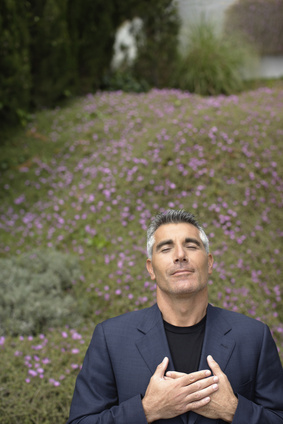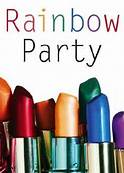
I talk to clients a lot about integrity. Since I do not believe I have the right to apply my morality or anyone else’s morality to another person, my goal as a therapist is for my clients to define and find the way for them to live in integrity, sexually and otherwise. But I realize maybe this a word we throw around without really diving in.
Integrity can be defined as the fairly ambiguous “having strong moral principles”. Ok, that can mean a lot of things. What I find is that many of us first need to establish –for ourselves – what exactly our moral principles are; then we can perhaps strengthen them. Integrity presupposes that we have come to terms with what is true and right for us and hopefully shed old shames that have been applied to us by others.
We use the word to apply to things we have built, implying that they are strong, sound, in good condition. Some people will define integrity as being honest, but I think that falls short.
The definition I like is this one – “The state of being whole and undivided’. This touches on the complexity of being a stand up human being, it allows for the fact that we may have differing parts, desires and needs that may sometimes confuse or conflict, but within our personal integrity we find ways to bring these things together, acknowledge them as part of us, and make a choice of what is best. I witness clients struggling with difficult choices prioritizing which value must take precedence at this time – do you honor the new passion you feel or a long-standing precious commitment? Do you honor a valued place in your community or a developing political statement? What you deeply want or what you believe to be right? This moment or a future plan? Integrity is not simple. It often requires that our perspectives change or develop. It can set us off balance as we search for a new balance.
This last definition also resonates with me as the feeling I have had when I am standing in integrity. I am not blindly following rules, I am full of awareness and in line with myself. I see that I have choice. And I have freedom in knowing I can simply show up with others because I am ok with my actions.
Consider how you interact and live your life differently when your conscience is clear, when you are at peace with yourself, undivided. How does this resonate within

I had another client this month coming to see me ashamed and frightened because someone told them they were a “sex addict”. I am happy to support these clients, who often tell me about sexual behaviors that have become overwhelming or out of control. I believe that healthy sexuality should feel full of choice, not compulsion. We work together to re-create a sense of their sexuality that is safe and satisfying, and unique to them.
What bothers me is the way the label “sex addict” is being used. First of all, sex addiction is not an accepted psychological diagnosis. It was considered and rejected for the most recent DSM (Diagnostic Manual). So it is a label being used in a non-scientific context, often by people not trained to assess for psychological or sexual issues anyway.
What I have seen is “sex addict” being used as a new form of moralizing. In the past someone might have felt the righteousness of being able to openly accuse someone of being immoral or perverse in general conversation. Nowadays openly making that type of judgment is not as acceptable, but we can call someone an addict. Because we can claim that is not a moral judgment, it is a condition. But defining what is healthy or unhealthy sexual behavior condition is often a judgment call, especially when done by a non-professional.
The current popularity of ascribing all kinds of diagnoses to one another is probably troublesome to most therapists out there, at least those that take assessment seriously. I wish people would simply say, “I am worried about the sexual behaviors you are describing to me. Maybe you could talk to a sex therapist.” This feels honest and cleaner that using a label to scare or shame someone into seeking help.
I want to be clear - there are many people who suffer greatly from damaging sexual patterns and a loss of control over their behavior and choices. And I want those people to be encouraged to seek help. Because there is help for this. I just want us to be careful and responsible about the way we talk about other people’s sexual behaviors. Let’s not turn “sex addict” into the new scarlet letter, applied whenever we feel affronted or offended by someone else’s sexual history. Sexual compulsivity is complex and contains all the subtleties of the human heart and mind. Let’s respect that.
Are you a health professional who wants to know more and support people in healing sexuality that has become harmful? Attend Melissa’s training in January 2015.https://www.eventbrite.com/e/building-sexual-integrity-a-sex-positive-approach-to-treating-compulsive-sexual-behaviors-6ce-hours-tickets-14098371609
 Same Old Sexual Panic
Same Old Sexual Panic
Remember the hullabaloo about the supposed trend of teenagers throwing parties where the girls line up to give all the boys blow jobs while leaving their mark with their lipstick color? Remember all that? Oh boy, our teens were just out of control. Hopefully somewhere along the way you also heard that this was an overwrought exaggeration manufactured to create a stir. No rainbow parties didn’t happen.
Of course if we had taken a few minutes to really think about this, most semi-informed people would have seriously questioned the whole premise. I mean, even highly hormonal teenage boys are not going to be able to sustain for a series of blowjobs in a row, at least not to the hysterical degrees this was described –“I heard every girl on the cheerleading squad did this!”. And even if we are imagining brief oral encounters, the lipstick leaving a distinctive mark thing is highly suspect. But okay, we didn’t think that hard about it. So the interesting question becomes, why do we want to believe these tales when they come around?
Why is each generation so willing to be convinced that the younger generations are having more extreme sex than they did, that sexual morals have turned some terrible corner, that teens need to be protected from themselves? There is simmering moral panic about the new “hook up culture”. And yet, recent studies have found no significant difference in the amount of sex college students have been having for the past 2 ½ decades. That’s since 1984 for those of you feeling math challenged today. A recent look into college kids sex lives, found that of current students 59% reported having sex weekly or more in the past year, compared with 65% in the 1980s and '90s. The groups showed similar patterns in the number of sexual partners in the past year: about 32% reported having more than one partner. Sure there seem to be more liberal ideas and values about sex among younger adults now and less pressure to identify a sex partner as a potential life partner. But if we look all the way back at the Kinsey Studies we see that much of the true sexual revolution has been in choosing to no longer hide sexual behavior that has been common for quite some time. So if sexual behavior is really not all that different than it has been, does that disappoint you?
And maybe that is the crux of it, we want to believe that sexuality is undergoing incredible changes. Maybe the middle-aged among us want to confirm their feelings of alienation from youth culture by thinking that it is ALL different now. Maybe we like to blame any sexual boredom we have now on the belief that “my generation never really got to be sexually free”. Maybe we are all trying to get vicarious fantasy material and want to read about more extreme sexual environments, even if they are made up to outrage us. Certainly the youth don’t want to think about their parents having sex like they are having. And vice versa. But more concerning to me are the underlying fears about sex that I see represented in our ongoing sexual panics about the youth. The fear that sex is an out of control force that only harsh social morals will protect us from. The fear that sex outside the context of married monogamy will lead to chaos. The fear that the existence and availability of sex will victimize us all. The fear that we cannot trust ourselves. Those are the aspects of sex that I hope we are changing, generation by generation.
A tattooed sex therapist from one of the most liberal towns in California meets a group of African priests and nuns…does this sound like a set up for a SNL skit? Actually tomorrow I travel to Kenya to do just that. I am meeting a dedicated group of nuns and priests who have been training for 8 months to provide psycho-spiritual counseling to fellow clergy throughout Africa. And we are going to talk about sex.
Sex is more than the behaviors someone enjoys. It is easy to disregard that in our focus on who does what, with whom, and how often. Researching celibacy, as I prepare to work with this group of people committed to celibate life, has taken me back to the roots of sexuality in a sense. It has reminded me that our primary sexual relationship is the one we have with ourselves, full of desires and sensations, longing to connect, fears, physical hungers, questions. Even without actively engaging sexually, we all have full and complex internal sex lives. And we have since we were born.
So can celibacy and sex therapy go together? I believe they can, and should. Sex therapy can allow someone to be more aware of their sexual energy as it moves and changes. It can reduce shame about being a sexual being so that a person has more energy to focus on utilizing sexual energy in a positive way in line with their perspective. It can deepen the conversation with our body and open new possibilities for responding to excitement or discomfort. It can reduce denial and therefore empower future actions. It can allow us to incorporate sexuality into the bigger picture of who a person is and wants to be.
I’ll admit I hadn’t given much thought to celibacy as an aspect of sexuality. I am very happy I have been invited to do so now and look forward to learning more from my students in Kenya. I honor that ultimately a healthy sex life is one in which each person feels they can make choices that are right for them, defined by their own integrity. The richness of any of those life choices comes from being aware and awake to oneself, day by day. There is always so much to learn.
Guilt and shame are two different beasts. Both inspire us to feel pretty crappy. Both serve to shape our behavior. But, important difference, guilt inspires us to do better, while shame leaves us feeling hopeless.
Those of us who spend time studying and delineating different emotional states – oh, the fun conversations about qualities of shame! – have noted that guilt and shame work on us differently. Guilt is created from a belief that you have done something wrong or bad. It is behavior driven. Shame hits us deeper; it is a belief that we, our self, is bad or wrong. It is personal. Again, both feel awful. Both make us want to crawl away and hide. But guilt, because it is about DOing something that felt wrong, motivates us to change our behavior. We can do something to avoid future guilt. Shame on the other hand, since it feels like something true about us, is about BEing. There is little we can do about a flaw we feel is deep within us. Shame is the internal voice that says, “if people really knew who you are, they would not like you”. Shame gives us little to bargain with. In this way, it is not very motivating. Shame makes us believe there is a problem within us that cannot be fixed, so our response to shame is often an internal giving up – depression, or a desperate avoidance – rage.
I believe that guilt is useful. It serves as a marker for our own integrity and values. It can guide us. Shame however, I think is an illusion about ourselves. It is a voice from old wounds that we couldn’t fight against, because we were too young to argue or too vulnerable. Shame tells you a lie – that you are ultimately bad and the best you can do is hide it from others. Shame blinds us and separates us from who we really are and who we want to be.
I remember in junior high being taught to respond to people with “I don’t like what you did” rather than “I don’t like you. Now, in junior high I was pretty certain that, in fact, I didn’t like certain people. This is still true as a more evolved adult. But the lesson is a good one for a lot of reasons. Shame will not make us better. Shaming is giving up on each other. Being clear about behavior that doesn’t work for you, that is something people can work with.
Why am I writing about this in Conscious Sexual Self? Because sexuality is an area where shame has been used a lot. And we have internalized it. Every time you think “I am bad for desiring that or “I am not OK for the way my body responds”, you cut yourself off from something important. And shame makes us feel like we don’t have choices, like our sexuality can never feel good and in integrity. But it can. You may feel guilty sometimes about something you did sexually. Ok, use that as guidance. But spare yourself the shame, if you can. The sexual part of you is good, natural, and deserving of a place in your life. We can learn to lessen shame, if we let ourselves.